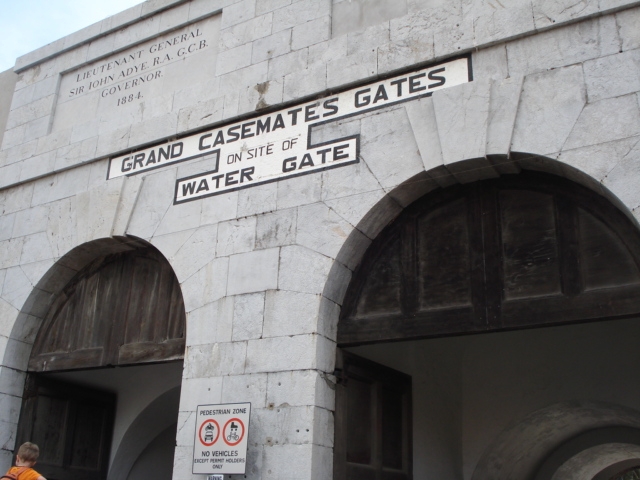Last news

HOMO SAPIENS III (30)
Published: 2021-03-02
In the early 17th century, English colonists, having received a license from King James I, established a colony in Virginia. In May 1607, build a fort named Jamestown was in the Chesapeake Bay. The main income of the new colony was the production of tobacco. The colonists acquired a group of African slaves. From this moment, the history of slavery in America began. Here was laid one of the main downfalls of the future leader of the free world.

HOMO SAPIENS III (29)
Published: 2021-03-01
COLONIZATION OF AMERICA
Discovery of America by Christopher Columbus of Spain to turn into a large colonial empire. Almost all of South America, except for Brazil, spoke Spanish. Huge revenues from the new colonies filled the royal treasury. Numerous missionaries poured into new colonies built temples, spreading Christianity, communing the local population with the new faith. In Northern Spain, she owned California.

HOMO SAPIENS III (27)
Published: 2021-02-27
The discovery of the American continent led to the flourishing of the black slave trade from Africa. The main slave trade markets were located in Morocco, Algeria, Tripoli, Cairo, Genoa, Venice. The maritime city of Lagos, Portugal, where African slaves were sold, was opened in 1444.
Slavery in various countries of the world still exists today. The number of people in slavery is said to be almost 25 million.

HOMO SAPIENS III (22)
Published: 2021-02-21
France, like most European countries, participated in the colonial conquests. French colonies of which, first of all, Algeria can be distinguished in northern Africa. Territories in Western and Equatorial Africa. Madagascar, New Caledonia, Guadeloupe, Martinique, Guiana, Senegal, cities in India. In North America, the French established the large colony of New France, territories in Florida and Louisiana. France owned vast territories in Canada.

HOMO SAPIENS III (20)
Published: 2021-02-19
Portuguese explorer Enrique the Navigator explored the coast of West Africa during sea expeditions. Portugal in 1420 captured the island of Madeira and then the Azores. As a result of numerous expeditions, the Portuguese established control of the African coast. In 1520, the Portuguese discovered Brazil. By the 16th century, Portugal owned numerous colonial territories in India, spice islands in Southeast Asia, the Persian Gulf region, and the territory in West Africa.

HOMO SAPIENS III (20)
Published: 2021-02-19
Portuguese explorer Enrique the Navigator explored the coast of West Africa during sea expeditions. Portugal in 1420 captured the island of Madeira and then the Azores. As a result of numerous expeditions, the Portuguese established control of the African coast. In 1520, the Portuguese discovered Brazil. By the 16th century, Portugal owned numerous colonial territories in India, spice islands in Southeast Asia, the Persian Gulf region, and the territory in West Africa.

HOMO SAPIENS III (18)
Published: 2021-02-17
The Renaissance and the Great Geographical Discoveries era was approaching, the end of the 15th century. The growth of commodity production, the lack of precious metals forces the Europeans to equip sea expeditions searching for new lands.
1488 The Portuguese Diego Kahn, Bartolomeu Dias, and others explore Africa's western and southern coast.
1492-1494 Christopher Columbus discovers America, the Bahamas, and the Antilles.

HOMO SAPIENS III (15)
Published: 2021-02-14
The slave trade in Western Europe also existed in the Middle Ages. In addition to the Scandinavian Vikings, Italian merchants from Genoa and Venice, the Portuguese imported slaves. The Irish city of Dublin in the eleventh century was the largest slave market in Western Europe. The gradual transition from slavery to serfdom lasted for several centuries. Slavery was permitted by law, but the Christian Church actively opposed enslaving fellow believers into slaves.

HOMO SAPIENS III (14)
Published: 2021-02-13
The beginning of the 13th century was marked by the invasions of the Tatar-Mongols' hordes under the leadership of Genghis Khan. Central Asia was conquered from the Indus to the Caspian Sea. The inhabitants of the cities taken by storm, left after a horrific massacre, were driven out into the field, divided among the soldiers, who turned them into slavery. The prisoners were used in the siege of cities.

Homo Sapiens III (11)
Published: 2021-02-09
Assyrian king Sargon II in 732-722 BC went to war against Israel. He captured and took prisoner the "ten tribes" of Israel. They were scattered among other peoples and lost forever. Modern Israel continues to search for its once-lost brothers, from time to time calling certain peoples the lost tribes of the Jews and even resettling the latter to modern Israel. The southern kingdom of Judah also did not escape captivity. Assyrian king Nebuchadnezzar II from 598 BC e. to 592 BC e.
















